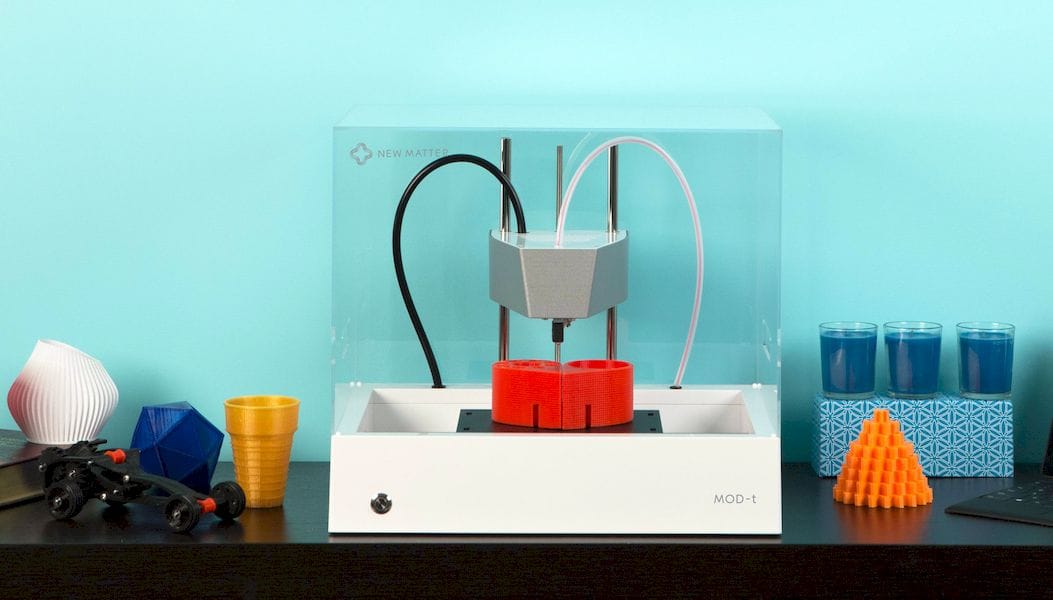
New Matter, makers of the MOD-t desktop printer, announced they’re closing business forever.
In a post on their site CEO Steven Schell explains:
We regret to announce that New Matter will be winding down its operations and will close the company effective February 28, 2018. It has become clear that our aspirations to transform the industry simply don’t fit profitably into the current market dynamics in desktop 3D printing.
Ouch! But most certainly an honest description of the state of affairs in the desktop 3D printing world at the moment. There is severe competition for any entrant, and even established companies such as New Matter are vulnerable. But what about those who have their devices? Schell continues:
Even though the company itself will no longer be around, we have taken steps to make this transition as smooth as possible for MOD-t users. In particular, we intend to keep the New Matter Store operational through mid-summer 2018, and we will make limited technical support available through mid-summer as well. After that time, your MOD-t will lose its Wi-Fi functionality but will still operate via the USB connection and the MOD-t desktop app.
So it appears that even though the company is definitely disappearing, they are taking some reasonable steps to assist those with existing MOD-t equipment. New Matter’s FAQ goes to great steps explaining all conceivable aspects of the dissolution and how it will affect their client base. Kudos to them, as it would have been a lot easier to simply walk away, but they’re not.
They’re keeping open some facilities for a short while, and even recommending folks stock up on spare parts, etc.
But this could have been much, much worse for users. MOD-t was one of the first cloud-based desktop 3D printers, where all of the intelligence was kept in the cloud and the machine was operated remotely from apps, rather than the control panel. It’s a great concept that has subsequently been adopted by several 3D printer manufacturers and third party add-on companies.
But wait – if the company is gone, what happens to the cloud? In fact, it disappears too. Fortunately, there are ways to run the MOD-t using Cura or other slicing software from desktop computers.
It might not have turned out that way if New Matter had designed the MOD-t to use ONLY their cloud. If that was the case, the machines would have been instantly bricked when the cloud clicked off.
Similarly, the MOD-t uses generic open filament, so there are no worries about lack of materials for those who wish to continue operating their MOD-t machine. Again, that could have been catastrophic if the MOD-t had used proprietary materials.
This incident is a reminder that if you acquire equipment that requires an ongoing commitment with the manufacturer, you are at risk of them failing and bricking your investment.
The moral of the story here is that you should certainly consider the viability of the manufacturer of any 3D printer purchase that involves proprietary elements. I’m not saying you shouldn’t buy such equipment, but simply take into account that risk, one that might appear rather suddenly in the future.
Via New Matter

